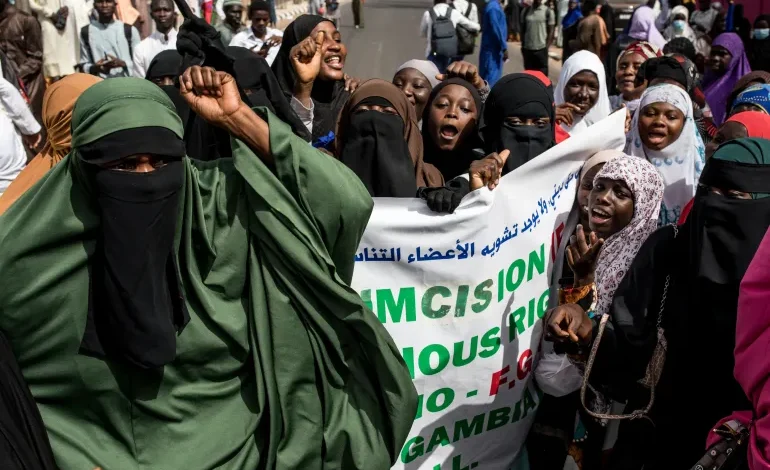The Gambia votes to reverse landmark ban on female genital mutilation

The Gambia has taken steps towards lifting a ban on female circumcision, a move that could make it the first country in the world to reverse legal protections against the practice for millions of women and girls.
Politicians in the West African nation’s parliament voted 42 to four on Monday to advance the controversial bill, which would repeal a landmark 2015 ban on female genital mutilation (FGM) that made the practice punishable by up to three years in prison.
Jaha Marie Dukureh, of Safe Hands for Girls, an NGO seeking to end FGM, told Al Jazeera that the practice was “child abuse”. She, herself, underwent the practice and watched her sister bleed to death following the procedure.
“The people who applaud FGM in this country, a lot of them are men. These are men who don’t have the same lived experiences that we do, and women who have been through this practice continue to tell them every single day what their suffering is, what their pain is,” she said.
The debate over repealing the ban, imposed by former Gambian President Yahya Jammeh, who ruled the country with an iron fist for 22 years before being toppled in 2016, has divided the nation.
The debate flared up in August, when three women were fined for carrying out FGM on eight infant girls, becoming the first people convicted under the law.
The bill will now be sent to a parliamentary committee for further scrutiny before a third reading, a process that is expected to take three months. The committee can make amendments to the measure.
Health risks
UNICEF, the UN agency for children, defines FGM as “the partial or total removal of the female external genitalia or other injury to the female genital organs for non-medical reasons”.










